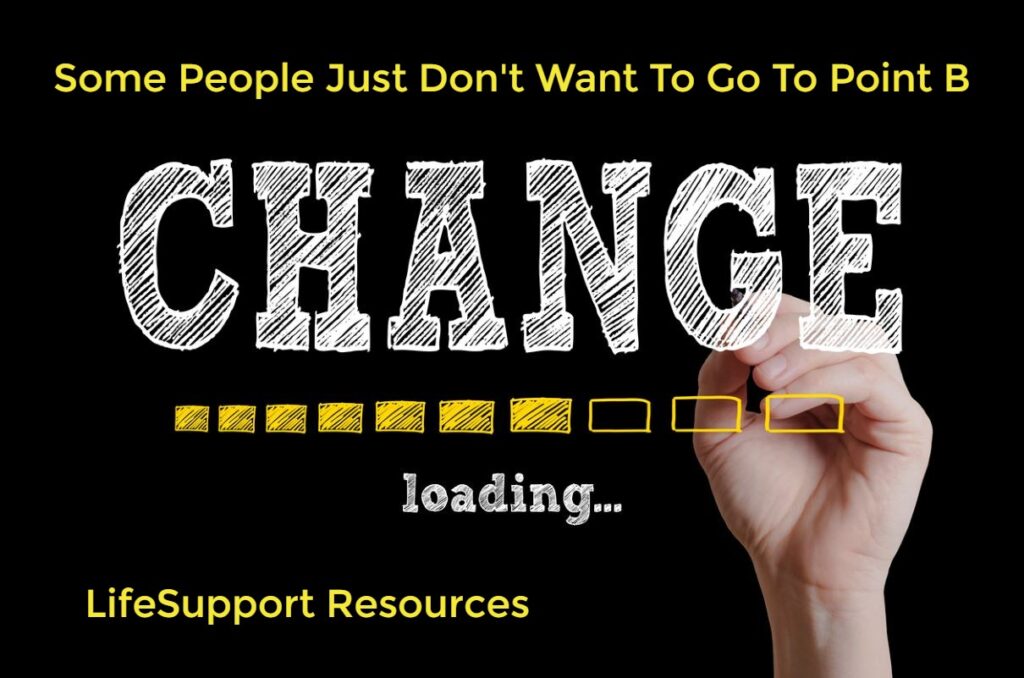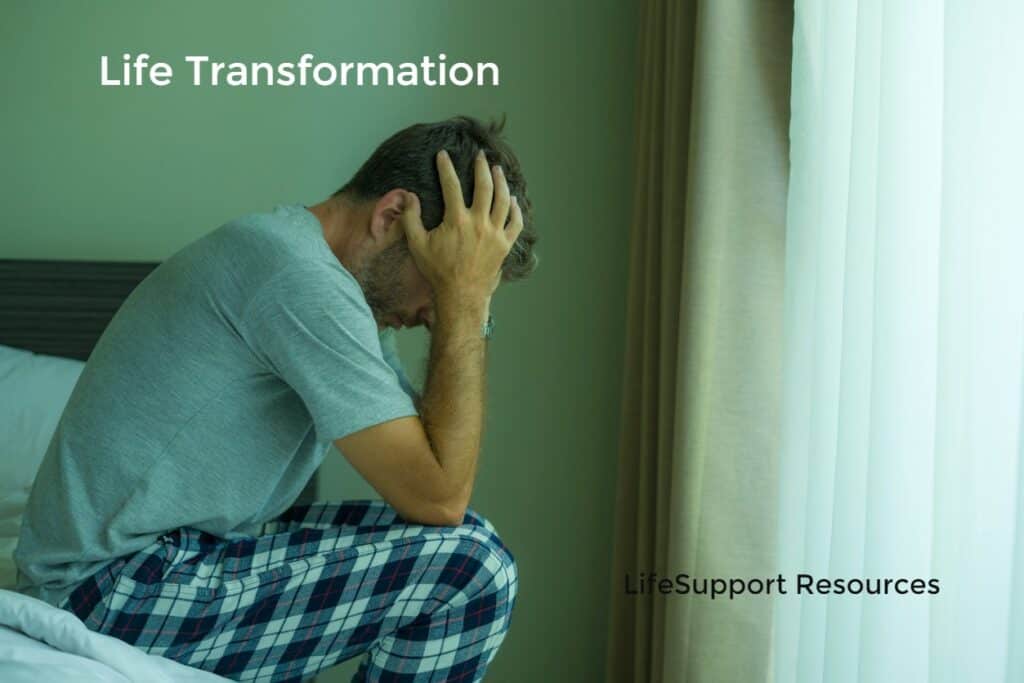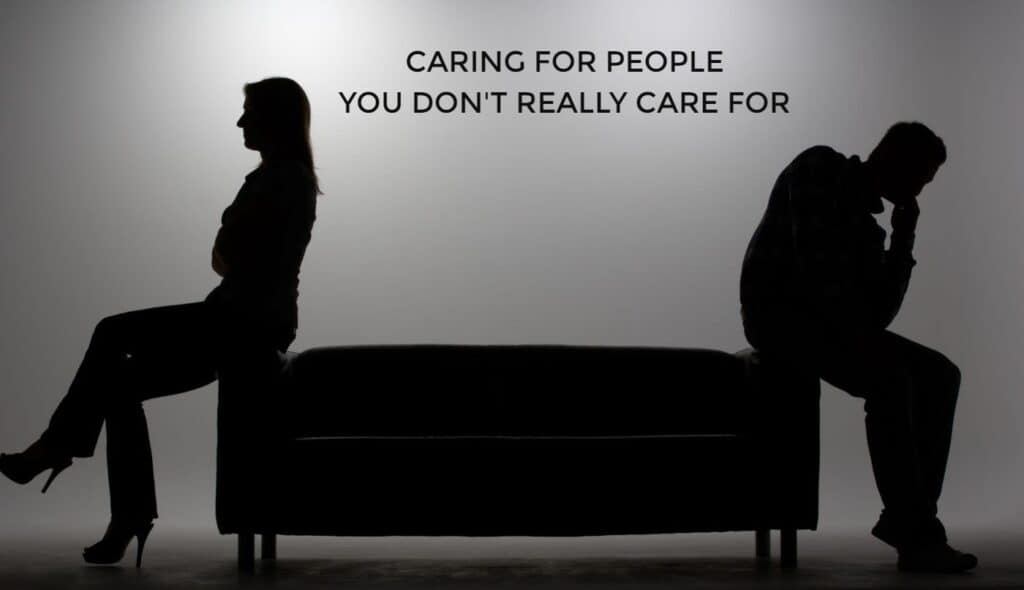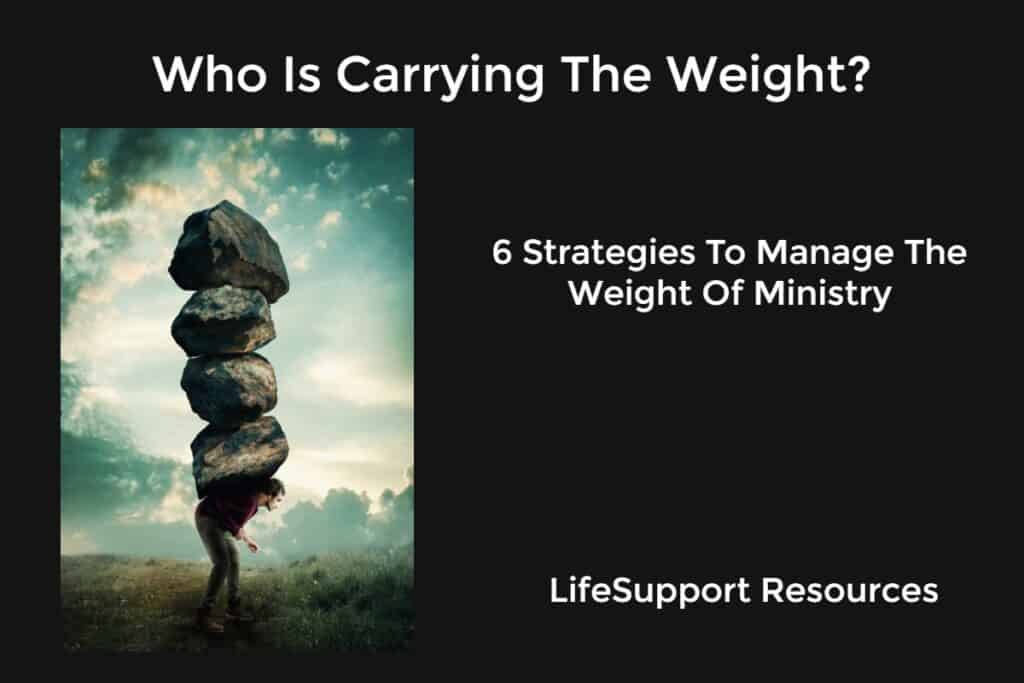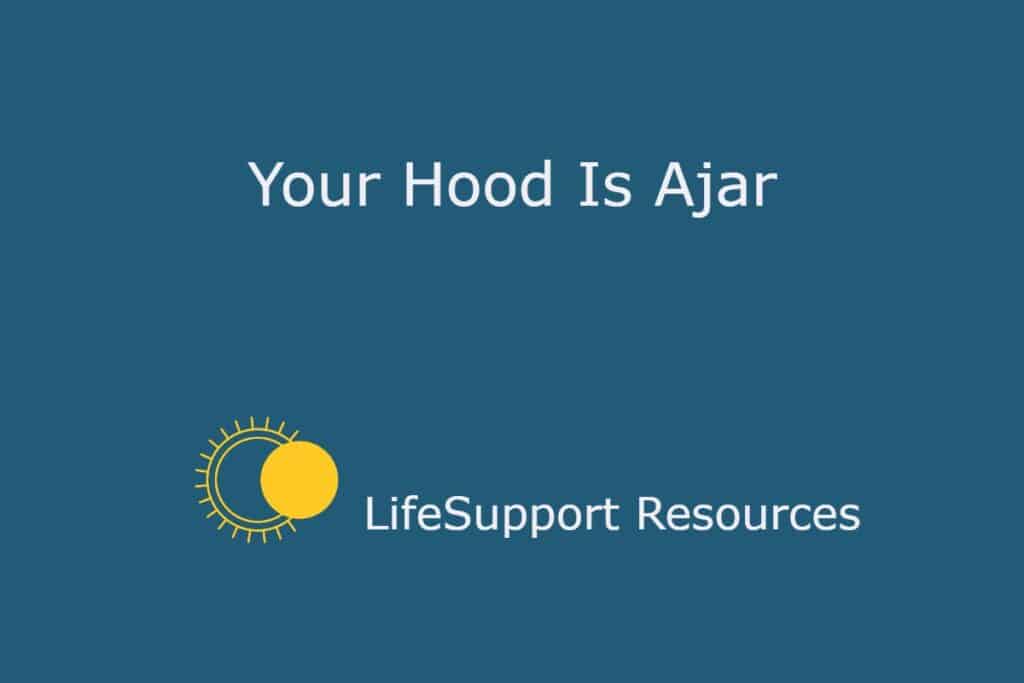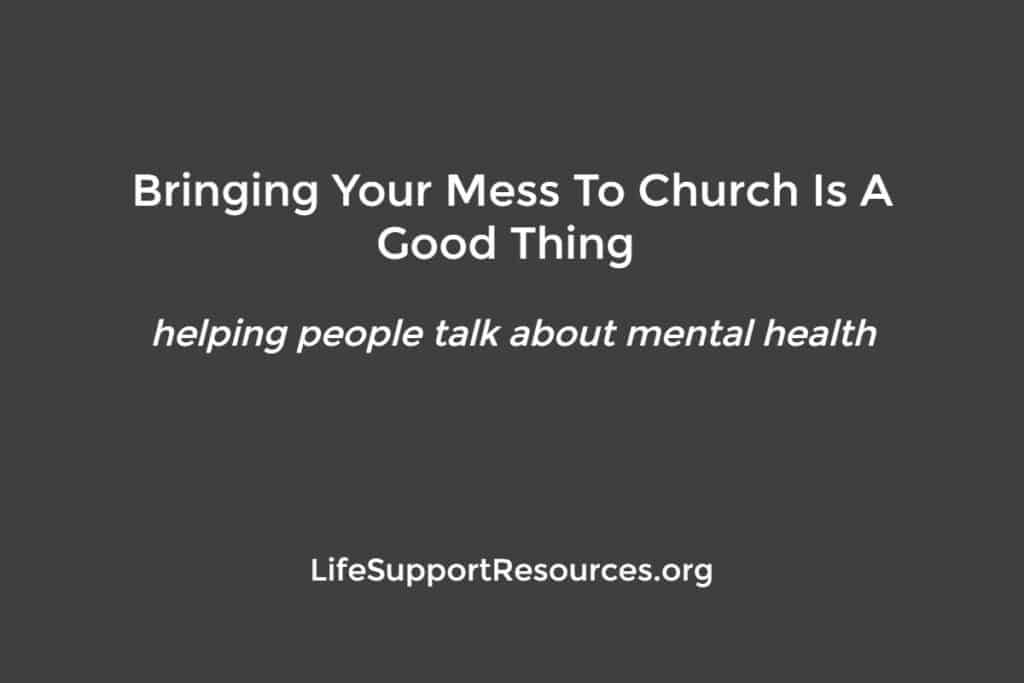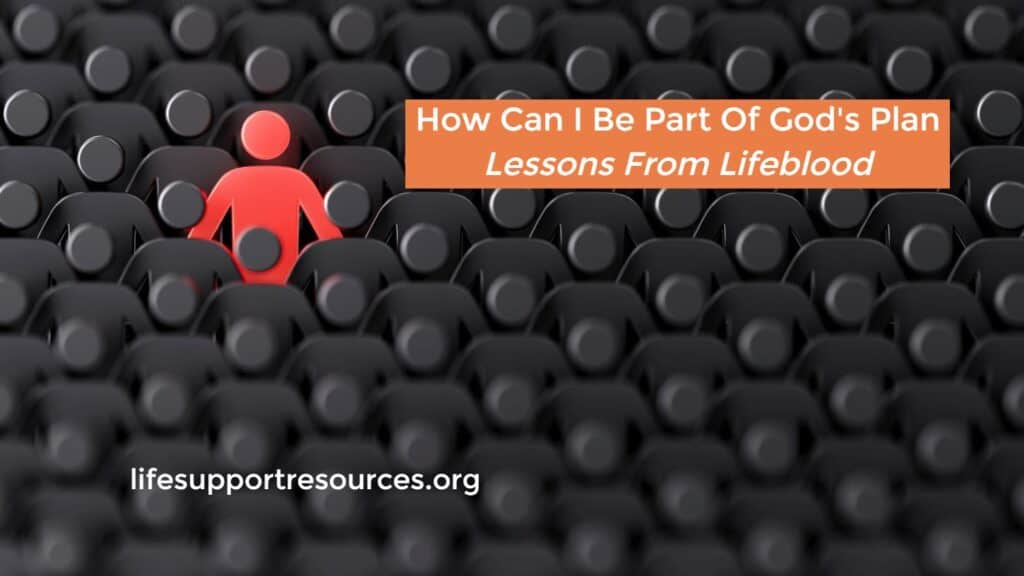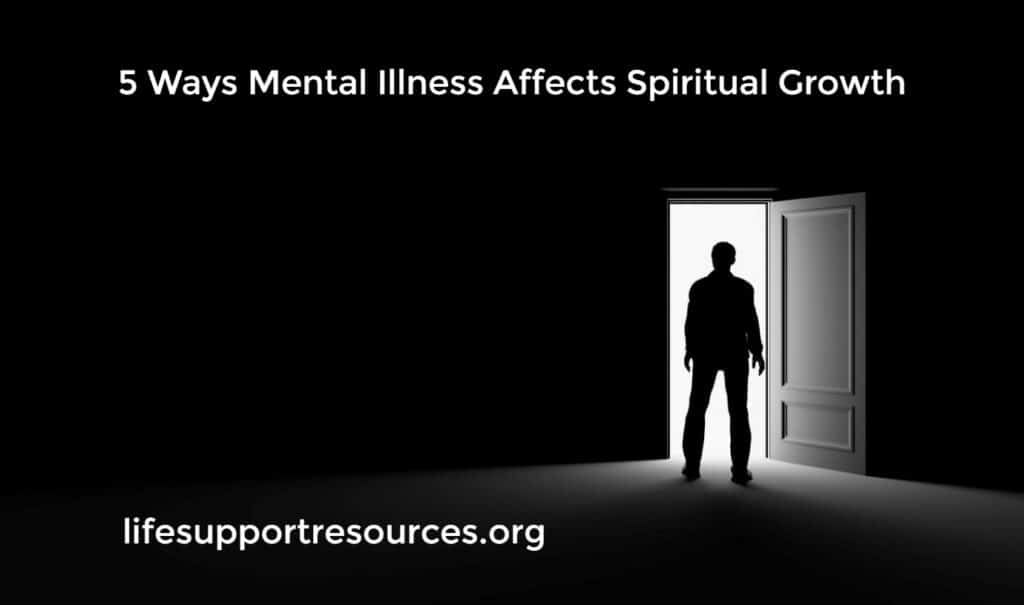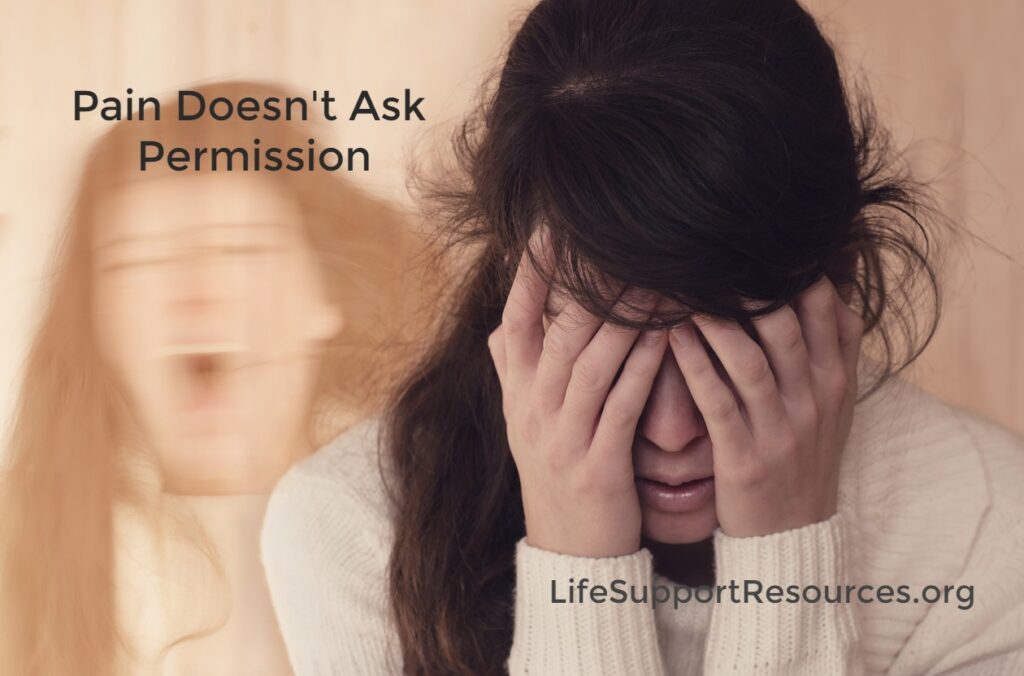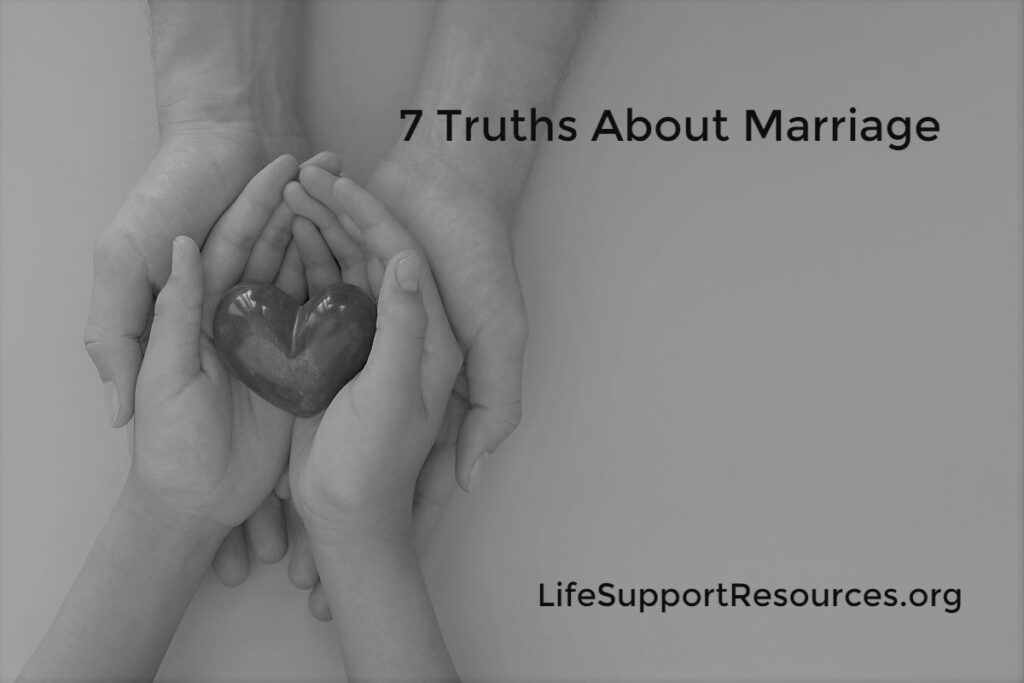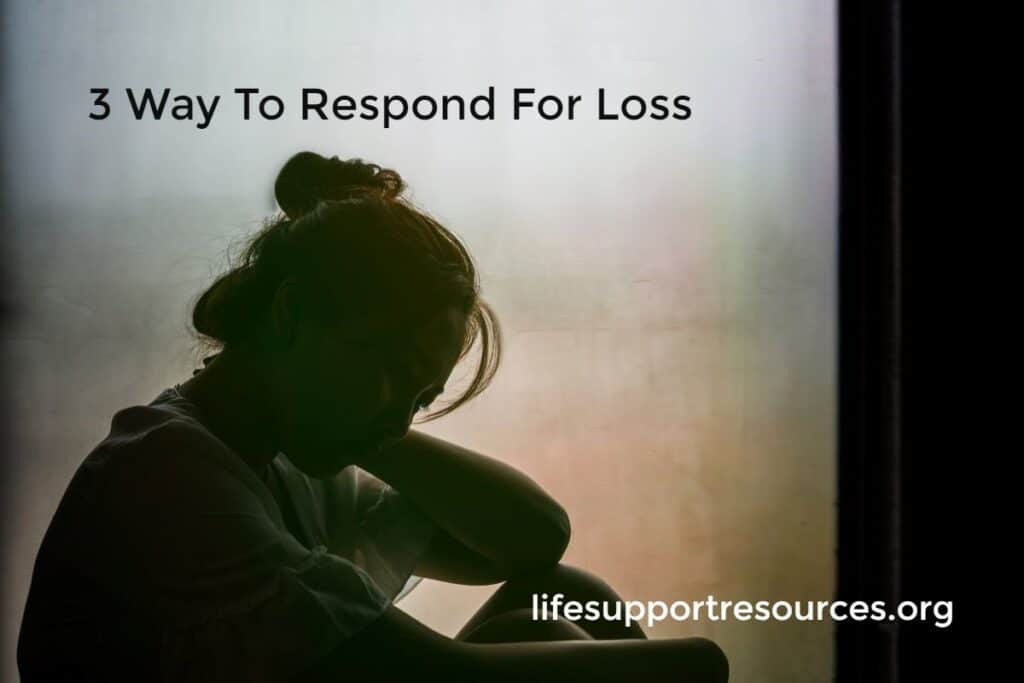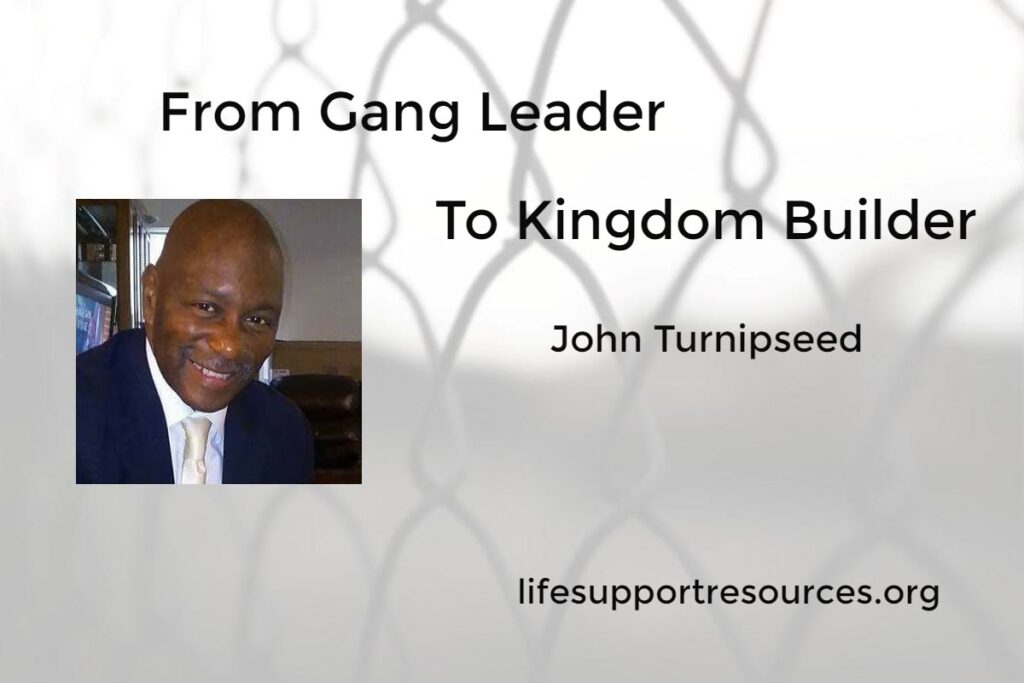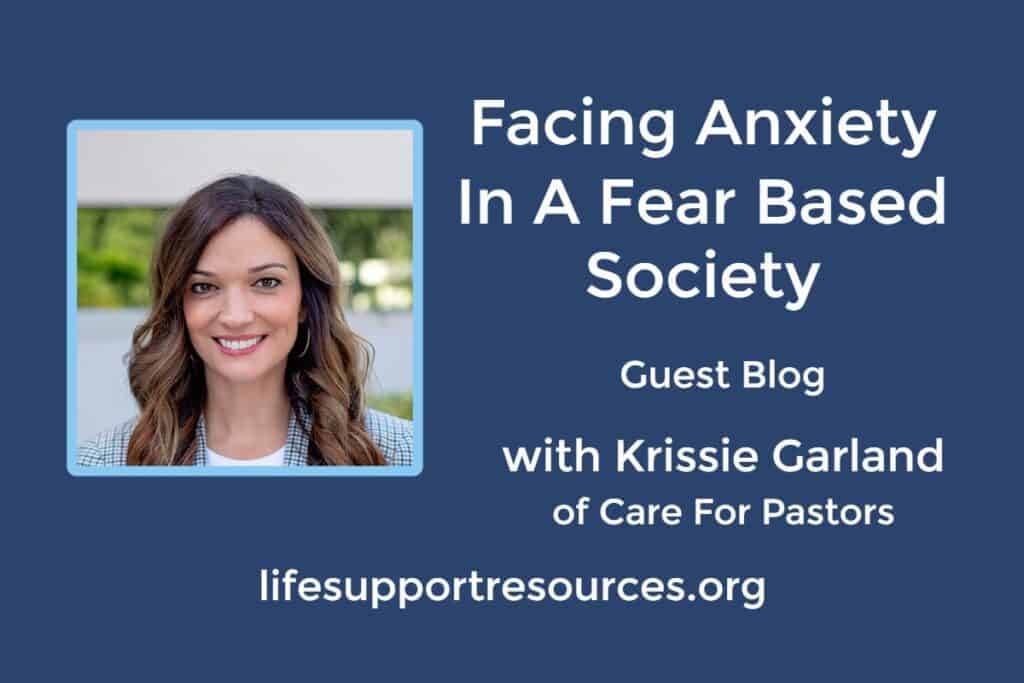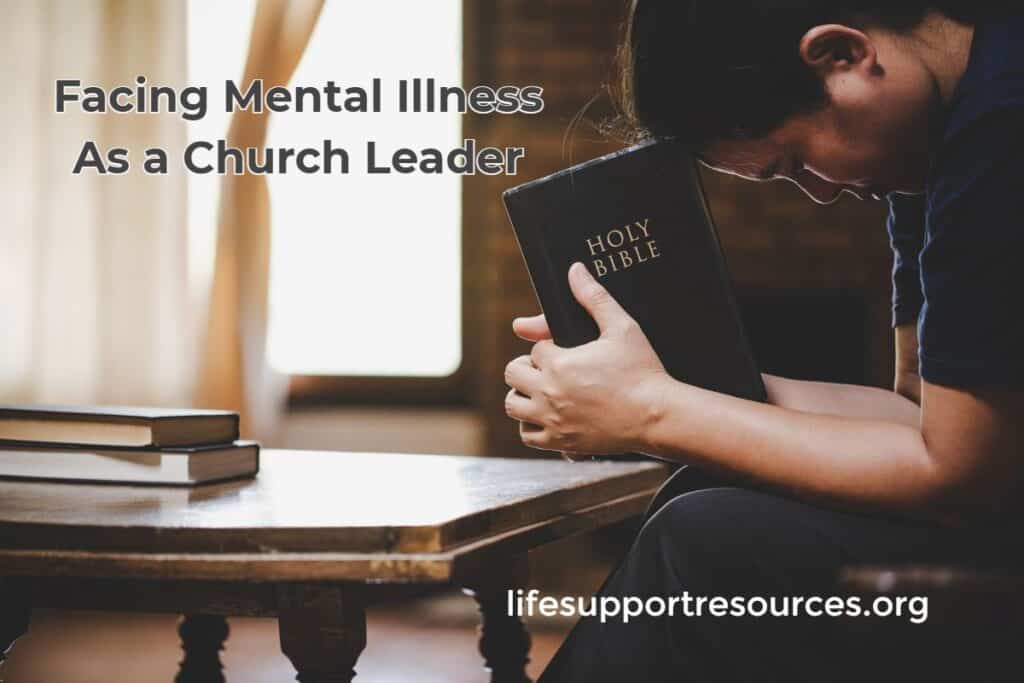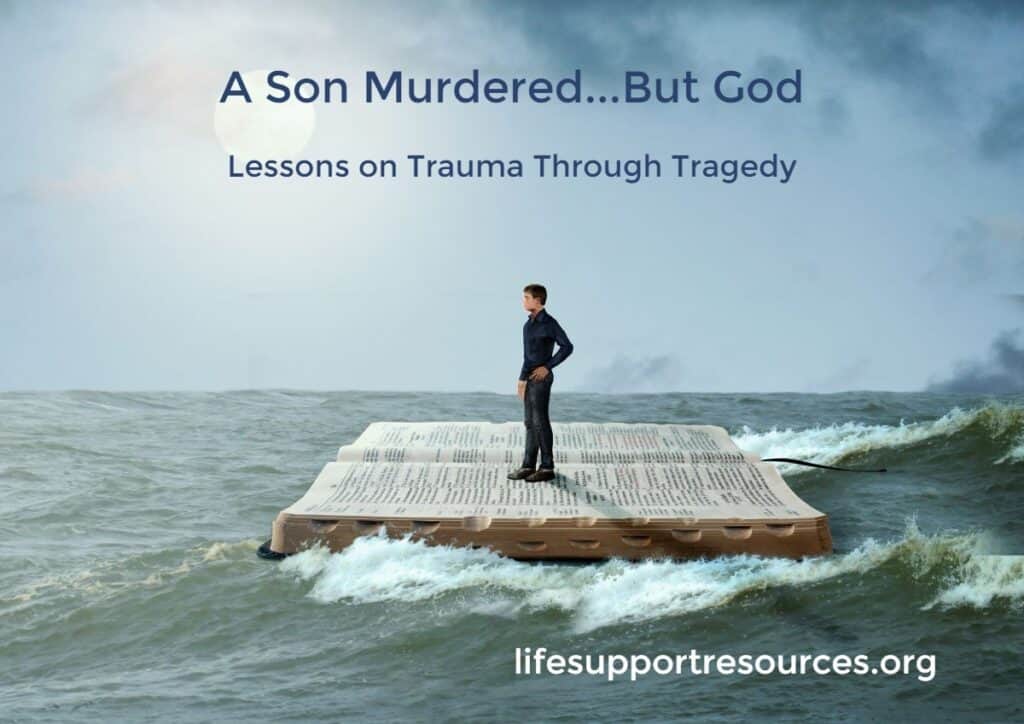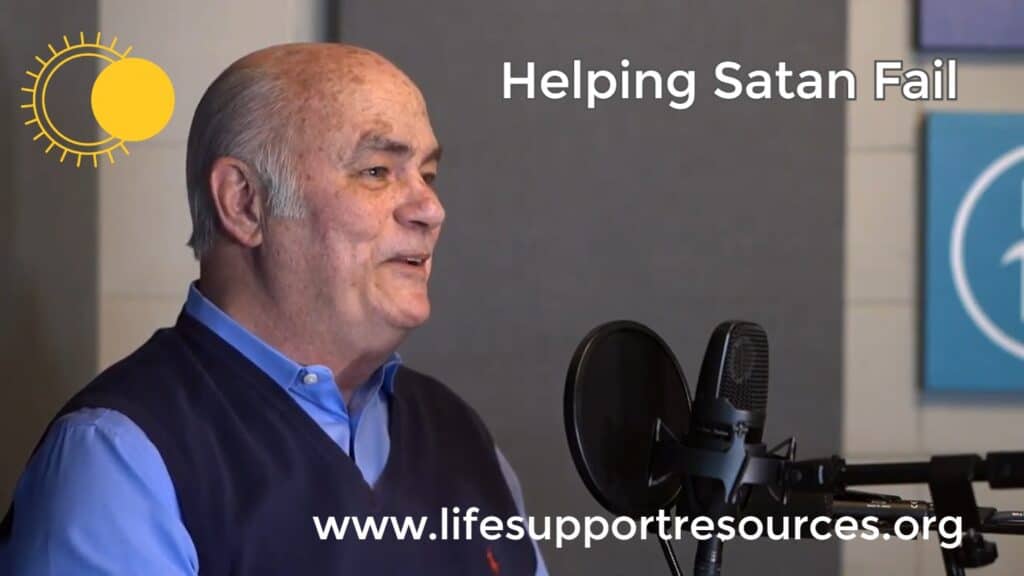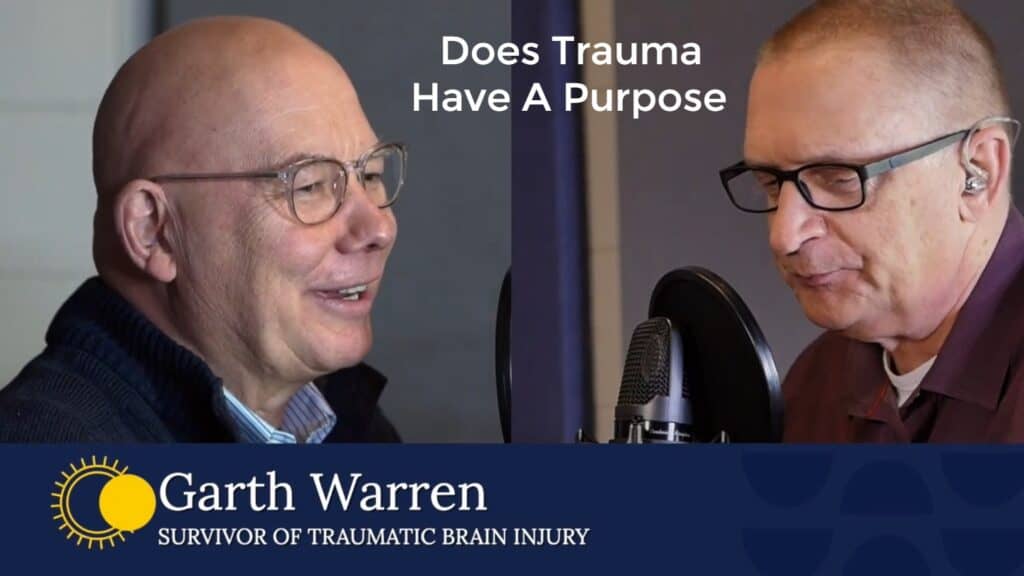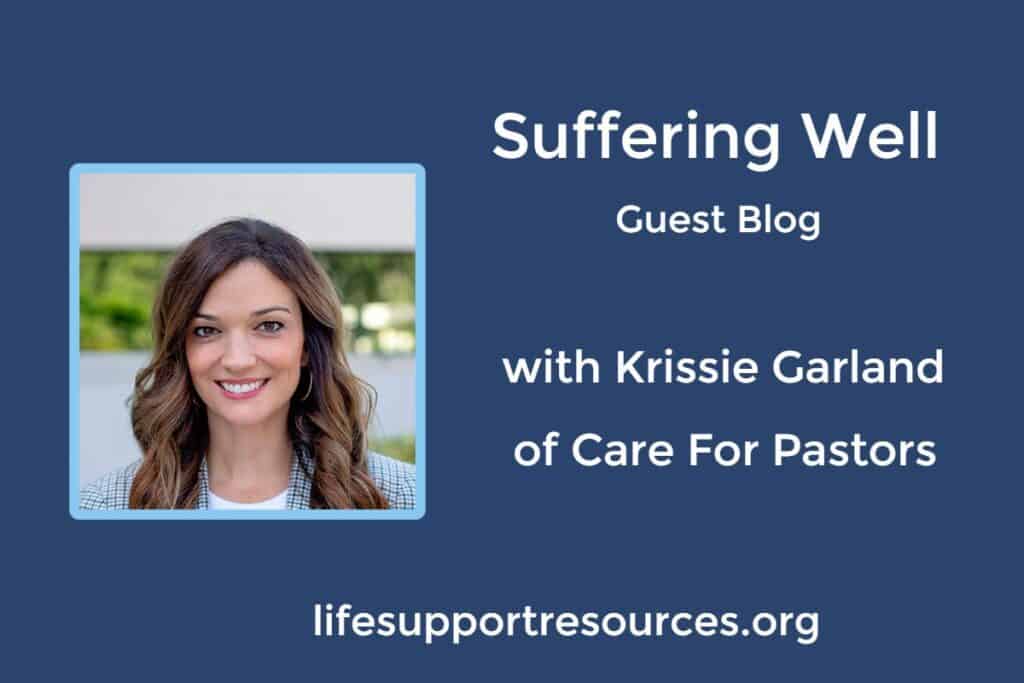Some People Don’t Want To Go To Point B
5 Reasons People Resist Change
At Five Stone Media/LifeSupport our mission is about changing lives. We tell stories of real people to help others find hope and healing that can help transform their lives. Through interactions with people seeking life transformation we get a front row seat to the struggles people have with change.
One simple definition of leadership is helping people get from Point A to Point B. If you work in or around ministry you know that some people just don’t want their church to change, they are happy to just stay at Point A. One recent study shows that one in three people would avoid change if they could. The problem is that change is an unavoidable part of life and ministry. Understanding why people resist change is an essential step in shepherding people through change. The following are five areas to focus on as you help others prepare for, and enter into change.
Uncertainty
We fear change because of the uncertainty it brings. Painting a clear picture of the intended destination will help reduce fears dramatically. For change to be accepted (if not embraced), there must be an understanding of the benefits of changing. People need to be convinced that Point B is a place they want to go before they can be comfortable leaving Point A. The description of the change, and the process for reaching that change must be thoroughly understood by everyone involved. The greater the uncertainty about change, the more likely people will fill in the things they don’t understand with gossip or their own personal fears.
Loss
We fear change because we fear we might lose what’s associated with the change. Many people view change as a transaction. It’s important to understand and acknowledge the personal costs of change. If you are asking someone to trade their current situation for a new reality, they will need to be convinced that there will be a real benefit to their life. Communicate the payoff to help people see the upside of the sacrifice that change will bring.
Why
We resist change because we don’t understand the reason behind the change. Helping people understand why they should change will lead to greater engagement with the change process. If you are entering into a period of organizational change rather than personal change it can be harder for those involved to see the reason for change, this is especially true for people who may not be directly involved, or who don’t have inside knowledge (a church congregation for example). For organizations who are entering a time of intentional change, it is essential to create a message that clearly communicates the need for change, and the timeline for the change. People who don’t get enough information can believe that information is being intentionally withheld. The goal should be to make sure everyone affected by the change completely understands this message and timeline. There is no such thing as overcommunicating the change message.
Timing
Life (and change) moves at it’s own pace. One of the biggest struggles a believer can have is waiting for God’s timing. Many people need guidance on how to release control over when and how the future will unfold. Additionally, people who are resistant to change need plenty of time to get used to the idea of change. In addition to over-communicating the WHY of change it’s important to start that communication as early as possible. Preparing people well ahead of intentional change will help increase acceptance by those who are naturally resistant. You can help create a culture that embraces change through consistent messaging in sermons, bible study, small groups, and all other areas of ministry. When church members need to see what it means to live like a Christian (and how to respond to change), they are going to look to the leaders in your church to find a model to copy. The greatest way to inspire others to trust in God’s timing and will is for every staff member and leader to demonstrate a high level of “change acceptance” in their own lives.
Capacity
In our work we often encounter people who believe they are simply not capable of changing. Sometimes it’s difficult to see this attitude because pride asks us to hide our uncertainty. Many people have heard a message of “fake it till you make it” at some point in their lives. We may find ourselves at a point in life where we know we need to change, but we are unwilling to admit that to others so we simply fake our way through life and pretend everything is okay. This choice will always lead to more pain. The change that needs to happen doesn’t go away just because we hide it away. Delayed change almost always leads to greater damage. Leaders can counteract the “fake it till you make it” attitude through modeling vulnerability and authenticity and communicating their own personal circumstances and past experiences.
Be Encouraged
Change is a constant in our world. If you struggle with change or if you lead others who struggle with change, remind yourself that change, while painful is the only way to grow. As believers we have set ourselves on a path to change from our human nature to be as much like Christ as possible. If you lead believers you are an essential part of God’s plan to change His world and the hearts of his children. Remember that the ultimate change we seek is eternal change. Any earthly struggle will pale in comparison to the rewards of Heaven.

